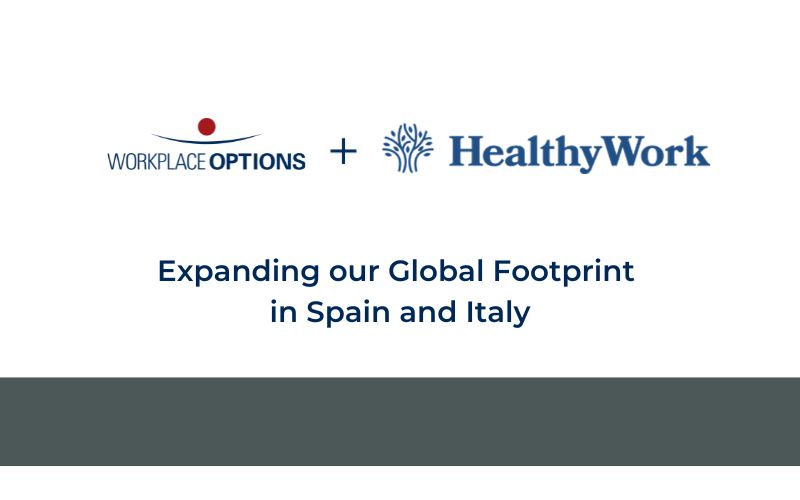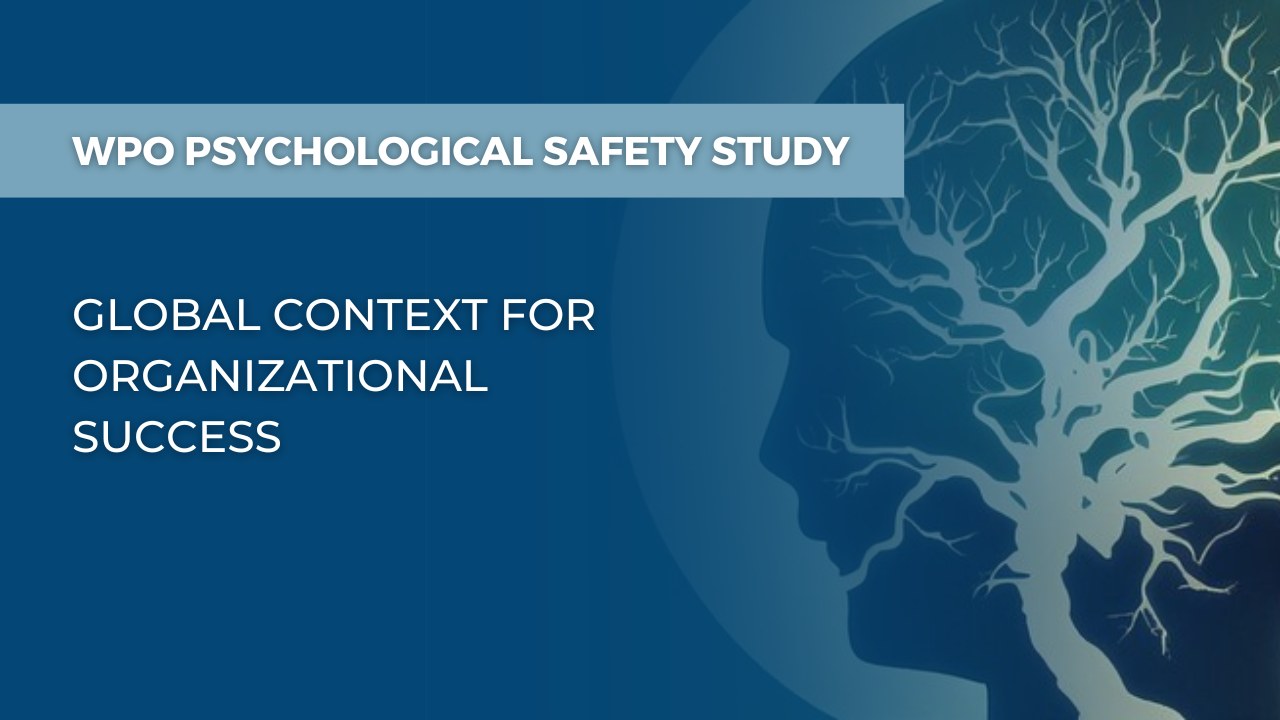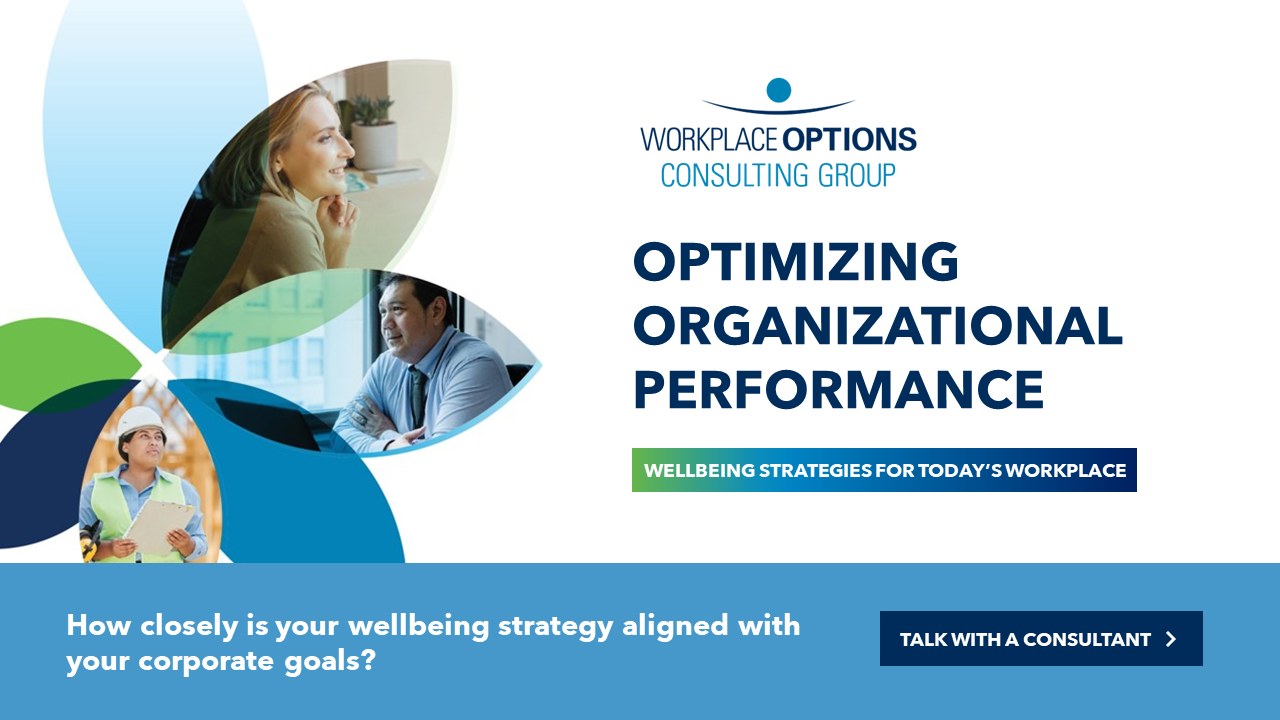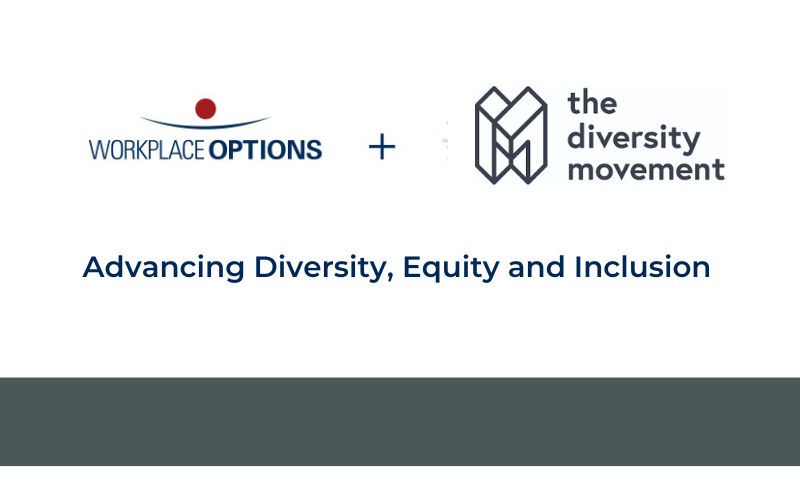Amid mounting pressures and unprecedented challenges across the globe, psychologically safe workplaces have become a necessity for building organizational resilience and sustainable success. Leaders at every level recognize that they need to cultivate cultures of trust, openness, and inclusivity, where every voice is heard, valued, and respected.
The financial consequences are straightforward: Psychological safety is the lynchpin of employee engagement and the heart of bottom-line business results. The benefits range from talent retention and enhanced innovation to better customer service and stronger brand value.
Data Directly from Employees – Not Surveys or Opinions
As the largest independent provider of customized and localized wellbeing services, with more than 116,000 clients serving 79 million people, Workplace Options (WPO) has deep insight on global psychological safety, derived from data via the human-to-human counseling our clinical team conducted with in nine countries: Australia, Canada, China, France, Germany, India, Mexico, United Kingdom, and the United States.
The findings comprise the “WPO Psychological Safety Study: Global Context for Organizational Success,” a website and multimedia content hub that presents information on how psychological safety affects employees in different countries. The site includes multimedia resources, white papers, videos, articles, infographics, and other information on the global significance of psychological safety.
The “WPO Psychological Safety Study: Global Context for Organizational Success” can be accessed here: Psychological Safety.
“A culture built on psychological safety has immense value. Deep-rooted employee engagement leads to greater creativity, innovation, and an environment where people can be their authentic self in every aspect of their life,” said Alan King, President and CEO, Workplace Options. “The results from this study will help leaders and organizations make a transformative difference in people’s lives by building resilient cultures focused on wellbeing.”
Study Results – Comparing and Contrasting Workplace Concerns Across Countries
Individual country information has been derived from clinician engagement with customers, providing insight into workplace symptoms manifest in the employee’s emotions, cognitions, and attitudes toward work. These include: workplace stress, anxiety/panic, low mood, job performance, conflict/tension with manager, lack of recognition, and others.
Leaders can utilize the data to understand the challenges their employees face. For example, in Australia, “lack of recognition” is the top issue on employees’ minds. In contrast, employees in India identify “conflict/tension at work with manager” as their foremost issue. A company with operations in these two nations/regions can utilize the study results to gain deeper insight into strategies and tactics that will build psychological safety and organizational resilience.
| Country |
Workplace Concern |
| Australia |
Lack of recognition, Work-life balance, Job performance |
| Canada |
Concerns with daily work activities, Job performance, Conflict of values/ethical climate in the company, Conflict/tension at work with manager |
| China |
Concerns with daily work activities, Lack of recognition, Lack of professional development |
| France |
Lack of professional development, Job performance, Concerns with daily work activities |
| Germany |
Work-life balance, Job performance, Conflict/tension at work with manager, Concerns with daily work activities |
| India |
Conflict/tension at work with manager, Job performance, Work-life balance, Lack of professional development, Concerns with daily work activities |
| Mexico |
Job performance, Concerns with daily work activities, Lack of recognition, Conflict/tension at work with manager |
| United Kingdom |
Lack of recognition, Work-life balance, Concerns with daily work activities |
| United States |
Work-life balance, Job performance, Conflict/tension at work with manager |
The Value of Psychological Safety
Given the constantly shifting global business environment, leaders must create workplaces centered on psychological safety, which is a cornerstone of inclusive leadership. Teams that feel psychologically safe are more innovative, productive, and resilient in the face of adversity.
“As part of an overall corporate wellbeing strategy on a global scale, it is important to create a framework that allows the cultures and practices to be considered and recognized at the local level,” said Mary Ellen Gornick, WPO Consulting Group Founding Partner. “The study gives leaders the information they need to create inclusive cultures in the locations where they have operations. But they should also keep in mind that variances might exist in how strategies are implemented at the country level.”
Benefits of psychological safety include:
- Deeper employee engagement: Greater creativity, innovation, and development of new products, services, and solutions.
- Improved Team Performance: Open communication, collaboration, and constructive feedback within teams.
- Increased Employee Engagement and Retention: Engaged, motivated, and committed to their roles and the organization leads to higher levels of job satisfaction, lower turnover rates, and greater retention of top talent.
- Enhanced Problem-Solving and Decision-Making: Open dialogue and the exploration of diverse viewpoints leads to more effective problem-solving and decision-making processes.
- Greater Employee Well-Being: Creates a supportive environment where individuals feel valued, respected, and cared for, resulting in lower levels of stress, anxiety, burnout, and promotes holistic health and wellness.
- Enhanced Organizational Resilience: Better equipped to navigate change, uncertainty, and adversity, employees feel empowered to adapt, innovate, and collaborate, creating agility and resilience in the face of external pressures.
- Improved Customer Satisfaction: Employees who feel supported and empowered are more likely to engage with customers in a positive and empathetic manner, leading to higher levels of customer satisfaction and loyalty.
About the Data
Workplace symptoms are the ways in which workplace stressors or uncomfortable working conditions manifest in the employee’s emotions, cognition, and attitudes toward work. Because employees contact WPO when they are under stress or need help, the company is in a unique position to observe the kinds of workplace issues and challenges that employees face.
The details with individual employees are confidential and are recorded in secure case notes to facilitate ongoing support. WPO also captures data in more quantifiable formats and report on these in aggregate (without compromising participant confidentiality) to help our customer organizations understand employee needs and recognize potential risks at the organization and location level.
We have limited our consideration to those countries where the sample size – the number of cases with work-related issues and symptoms – is sufficient to make variations in the data statistically significant.
ABOUT WORKPLACE OPTIONS
Founded in 1982, Workplace Options (WPO) is the largest independent provider of holistic wellbeing solutions. Through customized programs, and a comprehensive global network of credentialed providers and professionals, WPO supports individuals to become healthier, happier, and more productive both personally and professionally. Trusted by 56 percent of Fortune 500 companies, WPO delivers high-quality care digitally and in-person to more than 79 million people across 116,000 organizations in more than 200 countries and territories.
Contact:
Bob Batchelor, Director, Public Relations and Publications
Bob.Batchelor@workplaceoptions.com
Jennifer Dart, Corporate Communications Manager
Jennifer.Dart@workplaceoptions.com





































